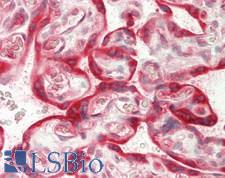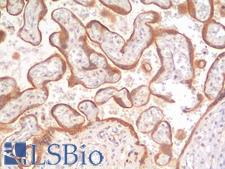Login
Registration enables users to use special features of this website, such as past
order histories, retained contact details for faster checkout, review submissions, and special promotions.
order histories, retained contact details for faster checkout, review submissions, and special promotions.
Forgot password?
Registration enables users to use special features of this website, such as past
order histories, retained contact details for faster checkout, review submissions, and special promotions.
order histories, retained contact details for faster checkout, review submissions, and special promotions.
Quick Order
Products
Antibodies
ELISA and Assay Kits
Research Areas
Infectious Disease
Resources
Purchasing
Reference Material
Contact Us
Location
Corporate Headquarters
Vector Laboratories, Inc.
6737 Mowry Ave
Newark, CA 94560
United States
Telephone Numbers
Customer Service: (800) 227-6666 / (650) 697-3600
Contact Us
Additional Contact Details
Login
Registration enables users to use special features of this website, such as past
order histories, retained contact details for faster checkout, review submissions, and special promotions.
order histories, retained contact details for faster checkout, review submissions, and special promotions.
Forgot password?
Registration enables users to use special features of this website, such as past
order histories, retained contact details for faster checkout, review submissions, and special promotions.
order histories, retained contact details for faster checkout, review submissions, and special promotions.
Quick Order
PathPlusTM GPC3 / Glypican 3 Antibodies
GPC3 (Glypican 3) is a heparin sulfate proteoglycan found on the cell surface of endometrial cells in a number of tissues including the placenta, lung, kidney, breast and adipose tissue. GPC3 forms a complex with and positively regulates Wnt and frizzled proteins to activate downstream signaling cascades, it binds to hedgehog protein SHH and negatively regulates the hedgehog signaling pathway, and it generally functions in the regulation of growth and cell division. Deletions of GPC3 are associated with Simpson-Golabi-Behmel syndrome. In immunohistochemistry, GPC3 has positive staining in the endometrium as well as in high grade hepatitis C. As a tumor marker, GPC3 is used to diagnose hepatocellular carcinoma (HCC), hepatoblastoma, melanoma, testicular germ cell tumors, and Wilms’ tumor. It is a therapeutic target for liver cancers.
References: Proteomics. 2007 June. 7 (13): 2300–10. doi:10.1002/pmic.200600654. PMID: 17549790; Hepatology (Baltimore, Md). 2019 Apr, DOI: 10.1002/hep.30646, PMID 30963603; Int J Clin Exp Pathol. 2015; 8(10): 13225–13232, PMID 26722522
2 PathPlusTM Antibodies


☰ Filters
Products
Antibodies
(2)
Type
Primary
(2)
Target
GPC3 / Glypican 3
(2)
Reactivity
Human
(2)
Mouse
(1)
Application
IHC
(1)
IHC-P
(2)
WB
(1)
Flo
(1)
IF
(1)
Host
rabbit
(1)
mouse
(1)
Product Group
PathPlus Cancer
(2)
PathPlus Cancer Pathology
(2)
Isotype
IgG
(1)
IgG1,k
(1)
Clonality
polyclonal pc
(1)
recombinant monoclonal rmc
(1)
Clone
rGPC3/863
(1)
Format
Unconjugated
(2)
Publications
No
(2)

Cancer Pathology
Cancer
GPC3 / Glypican 3 Rabbit anti-Human Polyclonal Antibody
Mouse, Human
IHC, IHC-P, WB
Unconjugated
50 µl/$460

Cancer Pathology
Cancer
GPC3 / Glypican 3 Mouse anti-Human Recombinant Monoclonal (rGPC3/863) Antibody
Human
Flo, IF, IHC-P
Unconjugated
100 µg/$525
Viewing 1-2
of 2
product results











